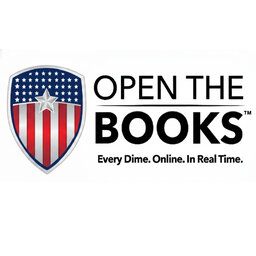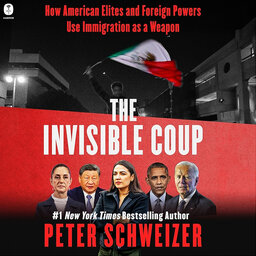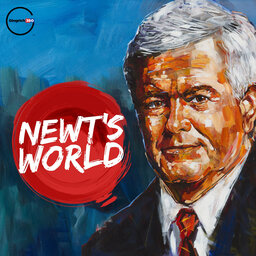Episode 761: "Leap of Faith" the new film by Nicholas Ma
Newt talks with Nicholas Ma, an award-winning director, writer, and producer, about his new film "Leap of Faith." The film follows 12 diverse Christian leaders as they navigate contentious issues and build bonds over a series of retreats in Grand Rapids, Michigan. The discussion delves into Ma's career transition from global economic policy to filmmaking, his inspirations, and the challenges of documentary storytelling. Ma reflects on the influence of Fred Rogers, the subject of his previous documentary "Won't You Be My Neighbor?" and how it shaped his approach to "Leap of Faith." The conversation highlights the importance of storytelling, emotional truth, and the power of vulnerability in creating impactful documentaries.
In 1 playlist(s)
Newt's World
Join former House Speaker, professor, historian, and futurist Newt Gingrich as he shares his lifetim…Social links
Follow podcast
Recent clips

Episode 948: ‘Moneyball’ for Politics
30:34

Episode 947: Will AI Take My Job
28:22

Episode 946: Peter Schweizer on “The Invisible Coup”
34:50
 Newt's World
Newt's World